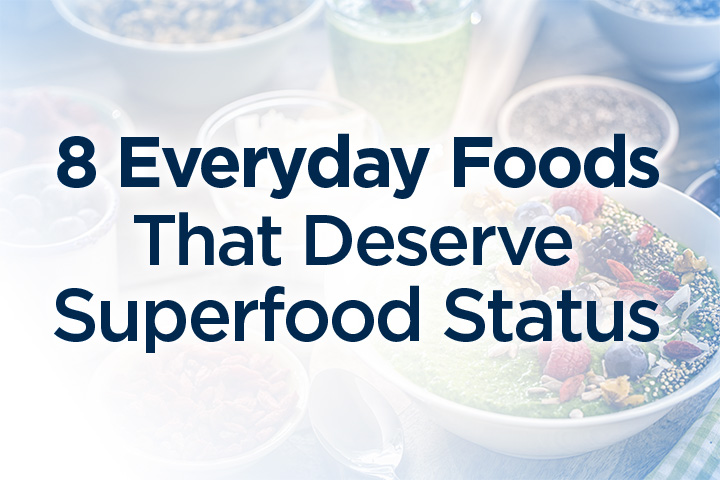Chia seeds, goji berries, kale – they’re marketed as “superfoods” you should stock up on, but what about the likes of apples, oranges and broccoli?

In a new Oklahoma State University study, scientists single out mangoes for their merits: they maintain healthy gut bacteria, they’re packed with fibre to keep us satiated and they have a laundry list of vitamins and anti-oxidants.
“Mango is a good source of fibre, and has been reported in previous studies to have anti-obesogenic, hypoglygemic and immunomodulatory properties,” Dr. Edralin Lucas, the study’s lead author, said in a statement.
“Adding mango to the diet may help maintain and regulate gut health and levels of beneficial bacteria levels,” Lucas said.
READ MORE: The 41 most nutrient-dense fruits and vegetables
While some foods are crowned “superfoods,” plenty of everyday items we eat are nutritional powerhouses, too.
“If you only concentrate on one or two foods that have a high profile, you’re really missing out on a lot of nutrients. It’s important to eat a variety of foods prepared in a variety of ways,” Rosie Schwartz, a Toronto-based consulting dietitian, told Global News.
“We think of superfoods as exotic or more expensive foods but everyday foods are just as good,” she said.
Schwartz and Nicole Osinga, a Courtice, Ont.-based registered dietitian, listed their picks for everyday foods that are often overlooked and deserve the superfood seal of approval.
Pulses
The United Nations declared 2016 as the International Year of the Pulses for good reason: if you’re trying to lose weight or you’re managing heart disease and diabetes risk, beans, lentils and chickpeas can help your cause.
Canadian research suggests that a daily helping of these foods – about three-quarters of a cup – could help with weight management and staving off chronic disease.
READ MORE: Add beans, lentils or chickpeas to your daily diet to lose weight
They’re a great plant-based source of protein and full of fibre, too. This will help make you feel fuller and control your appetite.
“People see them as a lowly bean but all of these foods help to lower cholesterol, regulate blood sugar, they’re rich in vitamins and minerals and yet people don’t think of them,” Schwartz said.
Collard greens
You might think kale is the sole leafy green that’s a “superfood” heavyweight, but collard greens are just as good, Osinga said.
For starters, one hundred grams of collard greens provide 133 per cent of your daily allowance of vitamin A and 638 per cent of your vitamin K needs.
READ MORE: What’s the best way to cook vegetables? Steaming, study says
“Vitamin A plays an important role in many bodily functions, such as eye health. Vitamin K is needed in helping blood to declot, and is also needed for insulin production,” she explained.
Both vitamins are also fat-soluble so they’re better absorbed with a dose of extra-virgin olive oil.
Apples
They’re a staple in your fruit basket but don’t take these tart treats for granted, Schwartz said.
“These fruits offer a range of phytochemicals, including those that protect against heart disease and certain cancers, such as lung cancer,” she explained.
READ MORE: 5 ways to keep your brain young and healthy
They have an assortment of flavonoids, including quercetin, which helps to alleviate eczema, sinusitis, and asthma.
They’re also a “top-notch” source of soluble fibre that helps with lowering artery-clogging cholesterol.
Kiwi
When you think of vitamin C, oranges come to mind, but two kiwis provide 300 per cent of your daily vitamin C needs, Osinga said. That’s more than double what’s in an orange.
“Vitamin C is so good for our skin. Collagen, which is the skin’s support system, is reliant on vitamin C as an essential nutrient. It also works as an antioxidant to help prevent damage caused by the sun and pollution.
Tomatoes
You add them to burgers, sandwiches and salads – the versatile tomato has a wide range of disease-fighting compounds, including lycopene and carotenoid.
READ MORE: Here’s what a top Canadian registered dietitian eats in a day
“Cooked or canned, tomatoes contain more absorbable lycopene. They also contain a range of other carotenoids. As a result, tomatoes are linked to a decreased risk of certain cancers and antioxidants protect against the oxidation of LDL, or bad cholesterol,” Schwartz explained.
The gel around tomato seeds protect against blood clots too, so they help to stave off the risk of a heart attack or stroke.
Blueberries
Acai berries garnered a lot of attention lately, but Osinga said you don’t need to search far and wide for this overhyped “superfood.”
READ MORE: 7 kid-friendly, dietitian-approved, easy-to-make lunches for kids
“Blueberries actually contain more antioxidants than acai berries and blueberries are much more readily available,” she told Global News.
“Antioxidants have been studied as nutrients that can prevent or slow the oxidative damage that happens to our bodies over time,” she explained.
Mushrooms
Different kinds of mushrooms bring different nutritional benefits to the table, but they’re all good choices, Schwartz said.
“Even the plain old button mushroom has anti-cancer compounds,” she said.
READ MORE: In a rush? Here’s what to eat for breakfast in the morning
Researchers suggest that eating these mushrooms could help protect against breast cancer. Other types of mushrooms better our immune system, findings also say.
Barley
This Canadian staple offers health benefits in a handful of ways, Schwartz said.
READ MORE: Trying to lose weight? 10 tasty foods you’ll like and can eat guilt-free
“Research shows it defends against heart disease, diabetes and certain cancers. The fibre has been shown to lower cholesterol and helps to regulate blood sugar readings, but there are also other compounds that contribute to the health benefits,” she said.
It’s not as popular as quinoa, but barley is full of selenium, B vitamins, magnesium and other nutrients and vitamins.
carmen.chai@globalnews.ca
Follow @Carmen_Chai



Comments